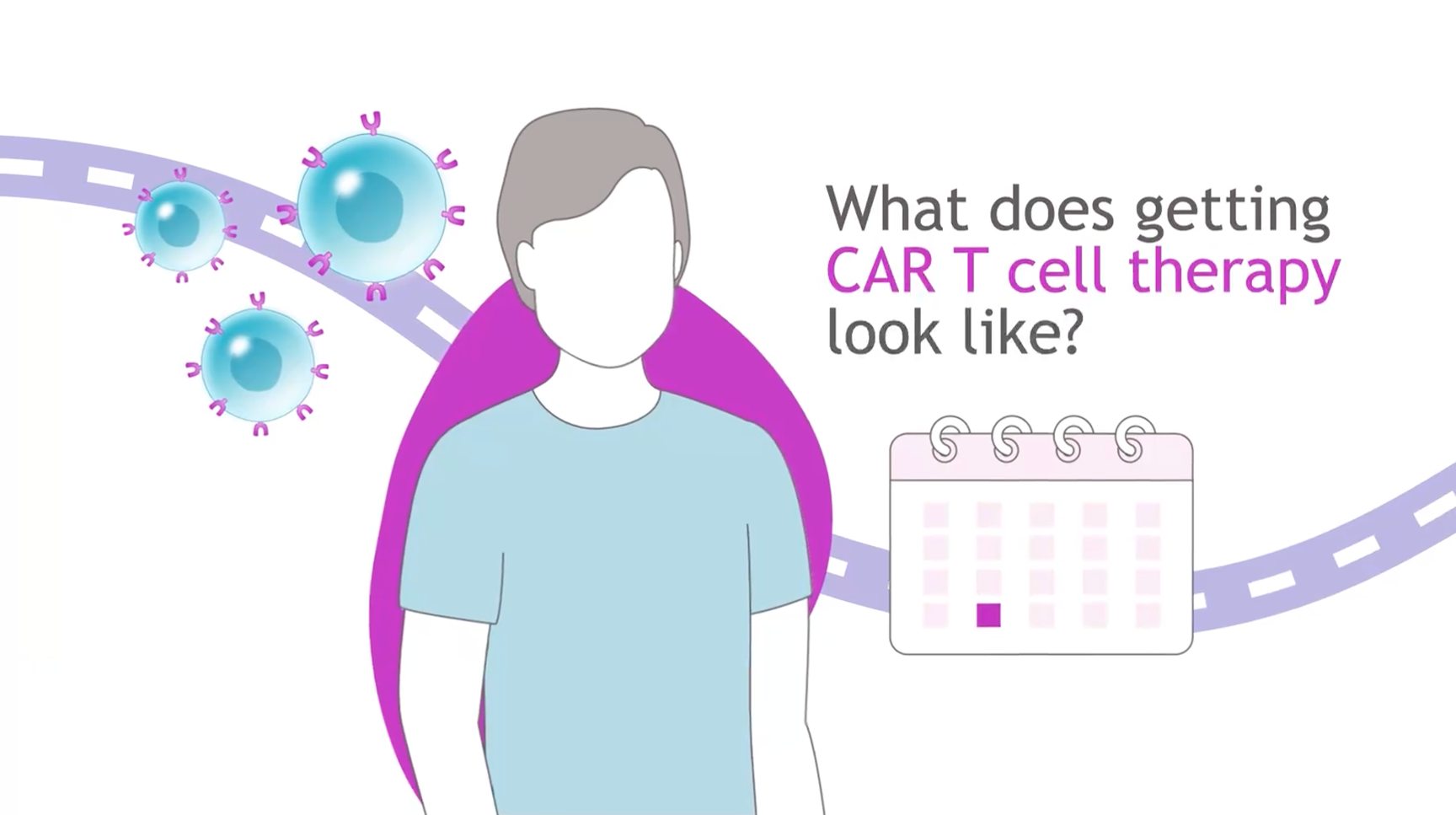Your CAR T Cell Therapy Journey
Though CAR T treatment will happen in just one day, the CAR T cell therapy journey from start to finish will take several weeks. You, your caregiver, and your healthcare team will work together through the following steps.










